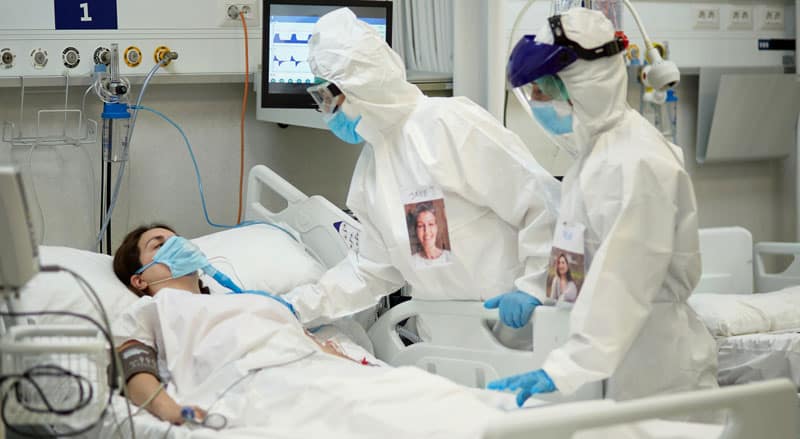A bombshell new study has revealed that most Covid patients who died after being admitted to hospital were killed by ventilators and not the virus.
The analysis, published in the Journal of Clinical Investigation, studied patients who died in the hospital during the early phase of the pandemic.
Since the pandemic first emerged, the use of ventilators was often seen as the end of the road as patients rarely recovered after being placed on one.
However, evidence now suggests that ventilators caused patients’ conditions to rapidly deteriorate, ultimately resulting in them becoming fatally ill.
The study found that the majority of Covid patients who were put on a ventilator had also developed secondary bacterial pneumonia.
The explosive study was led by Benjamin Singer, a pulmonologist at Northwestern University in Illinois.
“Our study highlights the importance of preventing, looking for, and aggressively treating secondary bacterial pneumonia in critically ill patients with severe pneumonia, including those with COVID-19,” says Singer.
From Science Alert:
The team looked at records for 585 people admitted to the intensive care unit (ICU) at Northwestern Memorial Hospital, also in Illinois.
They all had severe pneumonia and/or respiratory failure, and 190 had COVID-19.
Using a machine learning approach to crunch through the data, the researchers grouped patients based on their condition and the amount of time they spent in intensive care.
The findings refute the idea that a cytokine storm following COVID-19 – an overwhelming inflammation response causing organ failure – was responsible for a significant number of deaths.
There was no evidence of multi-organ failure in the patients studied.
In other words, although the patients had been hospitalized with COVID-19, the ventilator-induced secondary infection of bacterial pneumonia was responsible for the higher mortality rate.
The condition is called Ventilator-Associated Pneumonia (VAP).
“Those who were cured of their secondary pneumonia were likely to live, while those whose pneumonia did not resolve were more likely to die,” Singer says.
“Our data suggested that the mortality related to the virus itself is relatively low, but other things that happen during the ICU stay, like secondary bacterial pneumonia, offset that.”
The researchers stressed that the findings don’t diminish the health risks of the early strains of Covid.
For the patient to even require a ventilator would mean they were already experiencing respiratory problems from the coronavirus, they insist.
It’s worth bearing in mind that if a patient’s requirement for a ventilator to treat COVID-19 complications leads to VAP, this doesn’t imply that a COVID-19 infection is less dangerous, nor does it decrease the number of COVID-19 fatalities.
As the authors write in their paper, “The relatively long length of stay among patients with COVID-19 is primarily due to prolonged respiratory failure, placing them at higher risk of VAP.”
But the findings highlight a need for further study and to be cautious when making assumptions about the cause of death in COVID-19 cases.
A detailed molecular analysis from the same study should reveal more about what makes the difference between recovering or not from VAP.
The study confirms mainstream media reports from 2020 that approximately 90% of Covid patients who were put on ventilators died.
Nevertheless, the corporate media claimed the high mortality rate was due to the severity of Covid or preexisting health conditions, and not ventilator-induced pneumonia.
READ MORE: Fully Vaxxed Lose 25 Years of Life Expectancy, Study Shows

Our comment section is restricted to members of the Slay News community only.
To join, create a free account HERE.
If you are already a member, log in HERE.